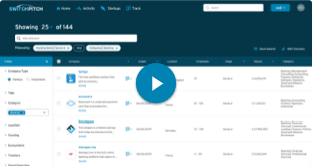
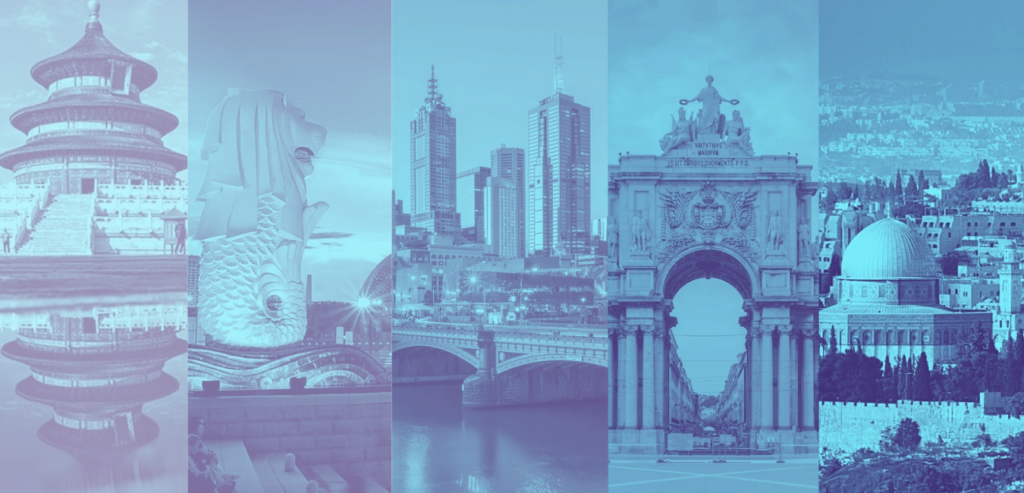
In an unprecedented era, start-ups play an ever more important role in the global economy by providing the market with innovative solutions. When talking about start-up hotspots, Silicon Valley and London might be the obvious answers. However, as globalization progresses and economies outside of the US flourish, innovative solutions and new companies emerge from around the world.
Even though no start-up ecosystem will surpass the size of Silicon Valley in the near future, there are some worthy competitors that thrive with unique values, cultures, and sub-sector strengths. Here is a list of emerging start-up hubs around the world:
- Beijing, China.
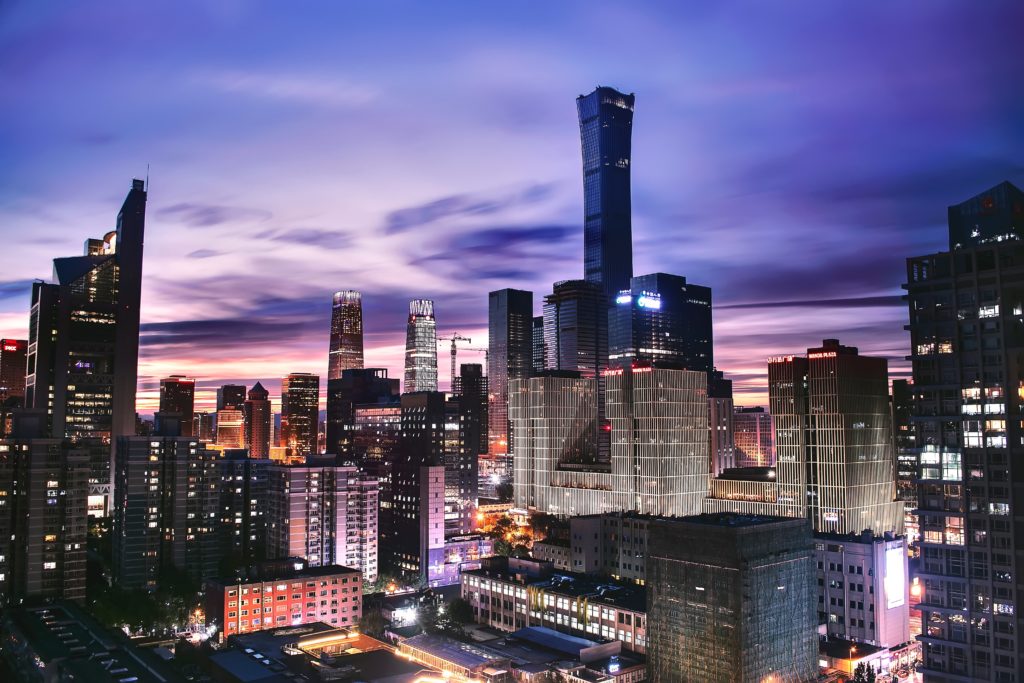
Beijing, one of the most populated cities in the world and the center of the country’s finance industry, technology hub, and political power. China is making a tremendous effort to claim global leadership in areas like artificial intelligence, and Beijing specifically desires to boost its entrepreneurial enterprises. To do so, policies have been passed to reduce taxes for start-ups and high-tech innovators, as well as the personal income tax for investors in the high-tech industry.
Zhongguancun, so-called China’s equivalent to Silicon Valley, is one of the tech zones mapped by city officials. According to the South China Morning Post, Zhongguancun is home to nearly 9,000 high tech firms, including some of China’s biggest internet firms, such as Chinese search engine and artificial intelligence giant Baidu, social media leader Sina Corp, as well as regional headquarters for global gurus like Microsoft and Google.
Moreover, nearly half of the country’s 70 unicorns and 10 AI labs are located in the area due to its collaborative and entrepreneurial atmosphere, as well as a large workforce of technology experts. “Beijing is home to 1,070 AI companies, 26% of China’s total,” stated in a Startup Genome report. The report also indicated Bytedance, the owner of TikTok and a Beijing-based AI unicorn, is the world’s largest privately backed startup valued at $95 billion. Recently, according to CNBC, a new $2.1 billion AI technology park is under construction in Beijing’s suburban Mentougou district.
- Singapore, Republic of Singapore.
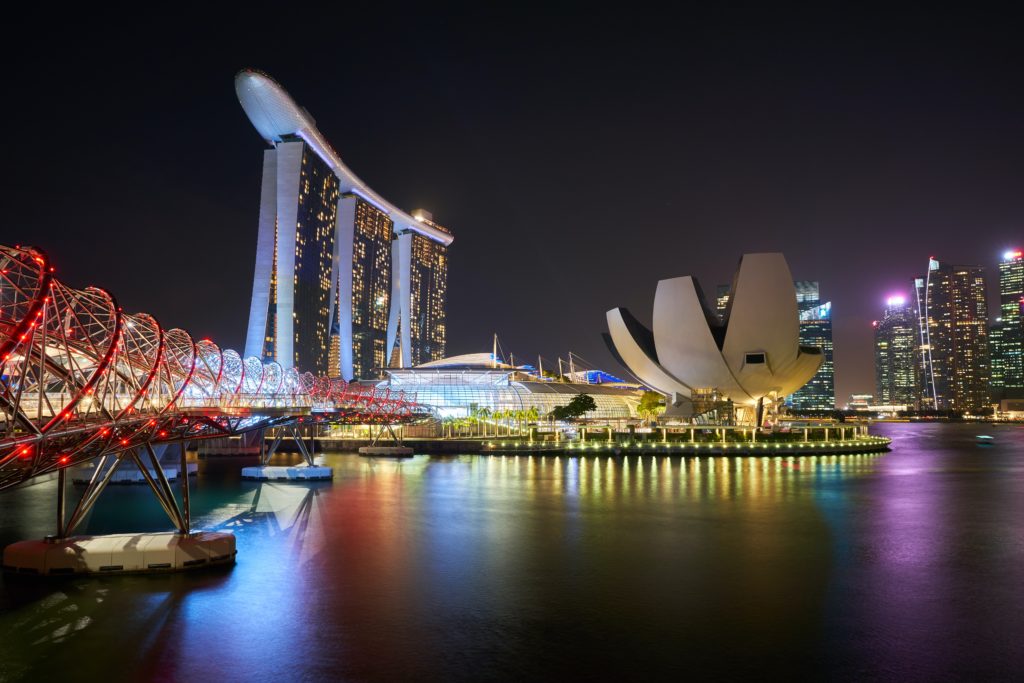
Singapore is one of the world’s economic and technological powerhouses. It is strategically positioned as an entry point into the Asia-Pacific region and its port functions as a perfect hub of trade and logistics. Moreover, it has strong research institutions and a great system that protects intellectual property. As a result, Singapore is currently ranked 17th on the Global Start-up Ecosystem Report 2020 by Startup Genome. Singapore now has more than 4,000 tech-enabled start-ups, which is a significant growth from about 1,000 in 2014, according to a PwC study.
Singapore has seen speedy growth in the total number of startups over the years: from 22,000 in 2003 to 43,000 in 2016. It had given birth to several powerful unicorns, such as Grab, Lazada, and Sea during this time frame. The most important factor that facilitates the growth of the startup ecosystem is the government’s support.
Startups in Singapore have access to significant government funding through more than 10 funding bodies, such as SPRING Startup Enterprise Development Scheme and the Early Stage Venture Fund Scheme. There are also startup-friendly policies including subsidies and a range of incubation schemes. For example, the National Research Foundation’s Early Stage Venture Fund catalyzes the formation of funds to invest in startups.
In addition, Startup Genome’s report stated that “as part of Singapore’s Research Innovation and Enterprise 2020 5-year plan, the government has allocated $4 billion to health and biomedical sciences R&D,” which indicates that these sub-sectors will continue to grow. Last year, Singapore’s first coworking innovation space for Medtech and healthtech startups, Catalyst, was launched, as well as the BlueChilli HealthTech Accelerator.
Regarding the startup market in fintech, the Monetary Authority of Singapore has introduced a fintech regulatory sandbox program, an innovation lab, and an innovation village called LATTICE80. The city also hosts the Singapore FinTech Festival x SWITCH, which is the biggest fintech and innovation event in the world, attracting more than 60,000 participants from over 130 countries.
- Melbourne, Australia.
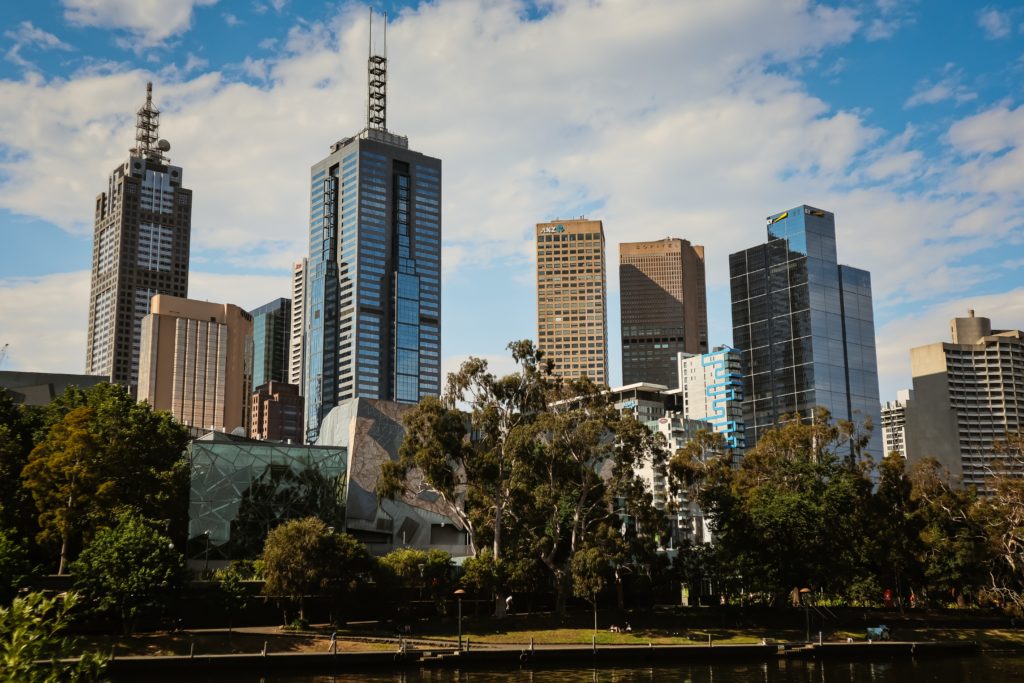
Melbourne is known for its diverse and inclusive culture, world-class universities and research institutes, as well as its vibrant and livable city life. More and more passionate entrepreneurs choose to start their dreams in Melbourne to enjoy its extraordinary coworking spaces, talent market, networking events, as well as government and state’s support. As Wade Institute puts it, “Victoria is Australia’s ‘startup state’ and Melbourne is the heartbeat.” Victoria’s ecosystem has an estimate of over 2,000 startups from seed stage to high growth enterprises. Its large community of startups nurtures more networking events.
In the Victoria region, there are 190 meetup groups centering around startups and entrepreneurship, with another 460 tech-specific groups, according to Wade Institute. The interactive and collaborative culture is continuously strengthened in the coworking spaces. The City of Melbourne reported that Greater Melbourne has seen 960% growth in the number of coworking spaces from 2013 to 2016, with 24 new spaces being added in 2016 to make a total of 170 spaces across the city. Melbourne’s central business district is now the coworking capital of Australia.
Melbourne is home to some of Australia’s most iconic startups that have already grown to become successful international businesses. For example, Realestate.com.au, Seek.com.au, and carsales.com.au were founded in the late 1990s and are each valued at more than $2 billion today, according to the City of Melbourne.
Recent booming startups such as Redbubble, Tribe, Envato, and Vinomofo, have the great potential to catch up to their startup predecessors. The AVCAL 2016 Yearbook captured the record level of fundraising levels for Australian venture capital funds, with $78 million invested in 20 Victorian headquartered companies. According to the Global Startup Ecosystem Report 2020, the value of Melbourne’s startup ecosystem has grown by over US$2 billion in the past year alone. We can also see steady growth in ecosystem value from US$1.6 billion in 2018 to US$2.24 billion in 2019 and US$4.8 billion in 2020.
Melbourne’s startup economy has exceeded growth expectations, and its strength in health, biotech, and life sciences, as well as the emerging creative technology and marketplaces, will continue to be reflected in Melbourne’s startup DNA.
- Lisbon, Portugal.
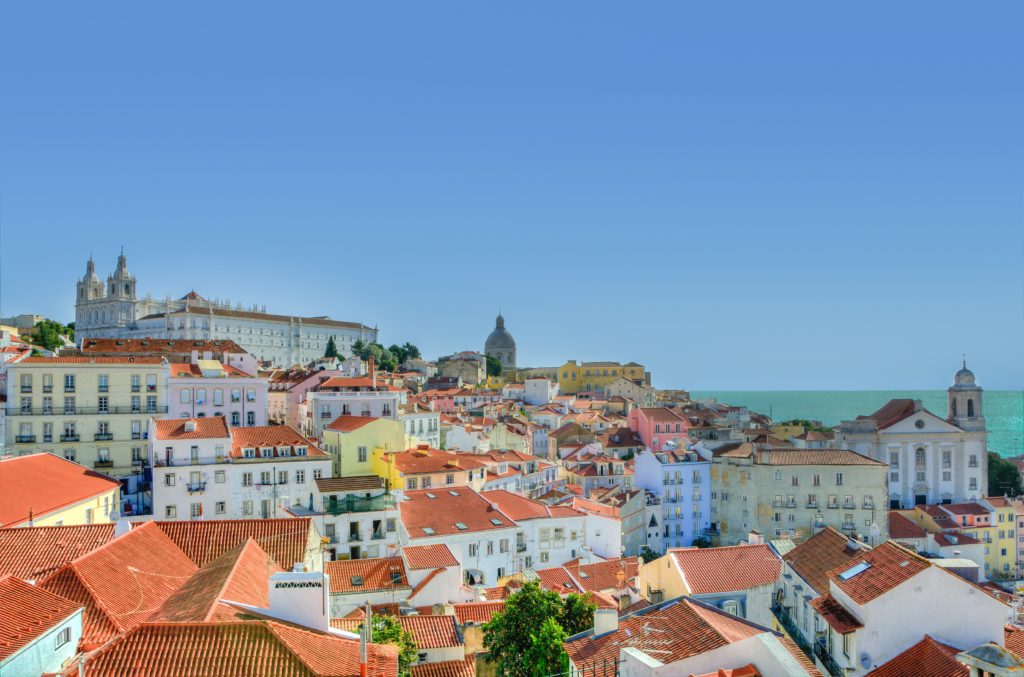
Lisbon’s startup scene is in an early stage, but it is growing rapidly to become the startup capital of Southern Europe.
After the economic crisis that struck Portugal in 2012, the government started to provide more opportunities for the world and embrace entrepreneurship in order to get more capital and a more stable economy. Since 2014, Lisbon based startups have raised more than €200 million (approximately $240 million), according to EU-Startups.
As of 2018, 7264 companies have been created in Lisbon, and 743 of them are in the high-tech sector, according to Made of Lisboa, the entrepreneur community of Lisbon based innovators. From electronics to software, companies such as Veniam, Talkdesk, Feedzai, and Outsystems started their journey here and have achieved global success.
Lisbon has also attracted big multinationals to open offices here. Just to name a few, Mercedes’s Digital Delivery Hub, Volkswagen’s massive software team, Google’s support center, and BMW’s team for software development. Their presence adds more knowledge sharing and collaborative opportunities to the startup scene.
The Portuguese government put a lot of effort and resources in order to promote and support the local startup ecosystem. As reported by EU-Startups, the Portuguese government created a €200 million venture capital fund in 2018, intended to boost foreign investments in startups.
Related to this, like many other EU countries such as Spain and Greece, Portugal offers a golden visa to non-EU residents who invest €500,000 (approximately $600,985) or more in property. In addition, tech entrepreneurs can get a startup visa, which makes starting a business in Lisbon much easier.
Technology conferences like the Web Summit and the Lisbon Investment Summit have significantly contributed to putting Lisbon on the European tech map. These big events attract tech professionals to the city and provide home-grown startups the opportunity to pitch international venture firms on a frequent basis.
With Lisbon’s high-quality engineering talents at a competitive cost and its ample amount of coworking spaces like Cowork Lisboa and Beato Creative Hub, the city’s ability to absorb and accelerate new businesses continues to expand.
- Jerusalem, Israel.

Jerusalem ranked in sixth place in Startup Genome’s Global Startup Ecosystem Report for 2020, showing its growth amid the pandemic. The report also highlighted Jurusalem’s strengths in life science, biotech, and AI. The city has about 150 life sciences companies and over 80 AI companies which benefit from an extensive municipal support net and its world-class academic institutes.
NoCamels.com quoted Jerusalem Mayor Moshe Lion in 2020: “There are currently 550 technology companies, 12 accelerators and hubs, and 18 investment funds in Jerusalem. Some 350 technology-related events are held in Jerusalem every year, and are growing.”
He also announced that the city will invest NIS 300 million (approximately $90 million) over the next few years in the city’s knowledge industry with new offices and related industries.
In the area of AI, the city has the largest AI-focused R&D center in Israel. Success stories include the Jerusalem-based autonomous car technology startup Mobileye. The company got global attention when it was acquired by Intel for $15 billion in 2017.
In Life Sciences, as reported in a blog post by Startup Genome, Jerusalem is one of the top 10 ecosystems in the world with more than 150 Life-Sciences-focused startups clustered in a relatively small area. In fact, OrCam, the first and only Israeli digital health startup worth more than $1 billion, was born in Jerusalem.
Jerusalem’s ecosystem supports Life Sciences with workspaces that cater to startups in the field, including the BIOHOUSE inside Hadassah Hospital and the BioGiv Excubator lab space at The Hebrew University. To better understand its scale, Startup Genome stated that Jerusalem is tied at #1 with San Diego for density of Life Sciences startups. Jerusalem as one of the most historical cities in the world is actually dynamic and fresh with its promising startups.
- Miami, United States of America.
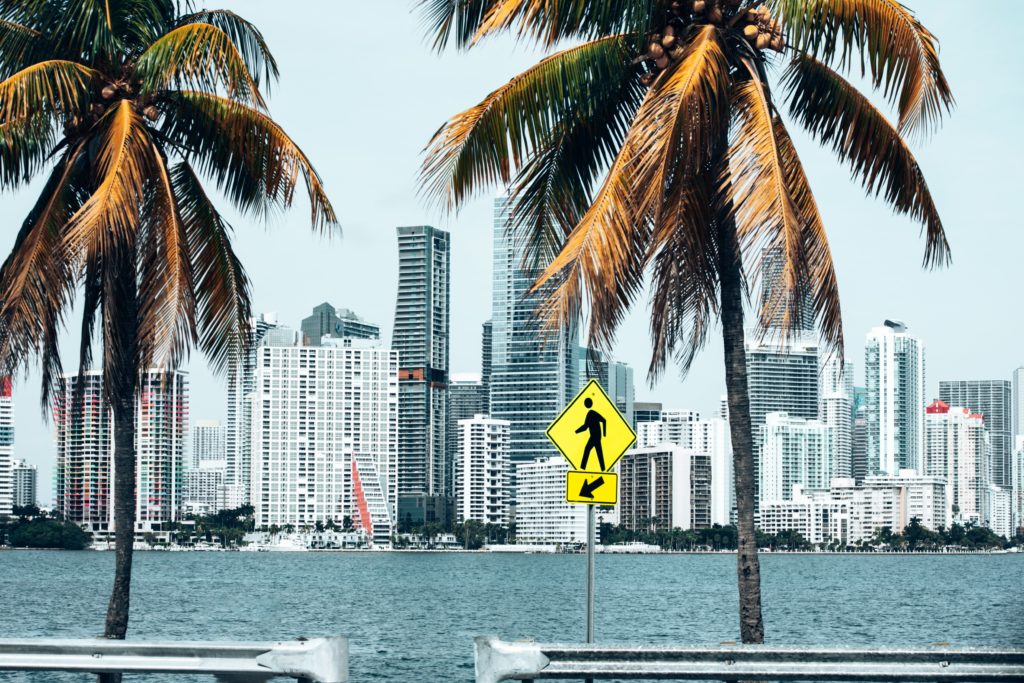
At home, Miami has been under the radar of entrepreneurs and investors. Last year, startup founders and investors in Miami raised close to $1 billion in venture funding, according to preliminary Crunchbase data. Interestingly, while the deal count last year was the lowest in five years, the dollar volume of venture capital invested in Miami was the highest there had been for the same period of time.
Since 2012, Knight Foundation has invested more than $25 million in co-working spaces, accelerators, and events to support Miami’s startup ecosystem, according to Miami Herald. Other organizations like Goldman Sachs, Endeavor, and Cambridge Innovation Center soon followed the trend to establish startup-related programs in the city. Many co-working spaces opened as a result, and the University of Miami, Florida International University, and Miami Dade College even added entrepreneurship programs.
- Austin, United States of America

Even before Miami became a strong player in the startup scene, Austin was already under the spotlight with its strength in sub-sectors like cleantech and cybersecurity. According to the Global Startup Ecosystem Ranking in 2019, Miami was ranked at the 26th while Austin was ranked at the 16th out of the 150 cities measured around the world. The report has also named Austin among the top 10 cybersecurity ecosystems in the world. Rising cybersecurity startups like ClearDATA and SparkCognition, as well as the U.S. Army Futures Command Center have all brought in tech talents and promoted tech innovation in Austin.
Austin is also home to the University of Texas’ Clean Energy Incubator, which is one of the longest-established energy and cleantech incubators in the United States. Some local clean energy startup success stories include Energy Curb and Banyan Water.
On the whole, tech companies are decentralizing out of Silicon Valley to escape high taxes, rent, politics, as well as to attract new talent. As stated in The Business of Business, job listing data across eight major tech companies including Google, Amazon, Paypal, Apple, Microsoft, Dell, Ebay, and Oracle shows a 38% increase in job listings for Austin between July 31 and December 21 in 2020. Similarly in Miami, where job listings across six major tech companies have increased 40% in the same time period. Lower cost of living, geographic location, and prominent local universities have all made Austin and Miami the new mecca for entrepreneurs and big corporations alike.
By watching emerging startup cities around the world, we can identify some recurring factors that fuel the growth of the startup ecosystem: governmental support, favorable policies and incentives, convenient location, coworking spaces and communities, talent market, as well as local research and educational institutions. More importantly, startups based in those renowned tech hubs have more opportunities to raise funds, attract investors, and develop corporate connections. For more information on startup relationship management, check out SwitchPich’s home page.
